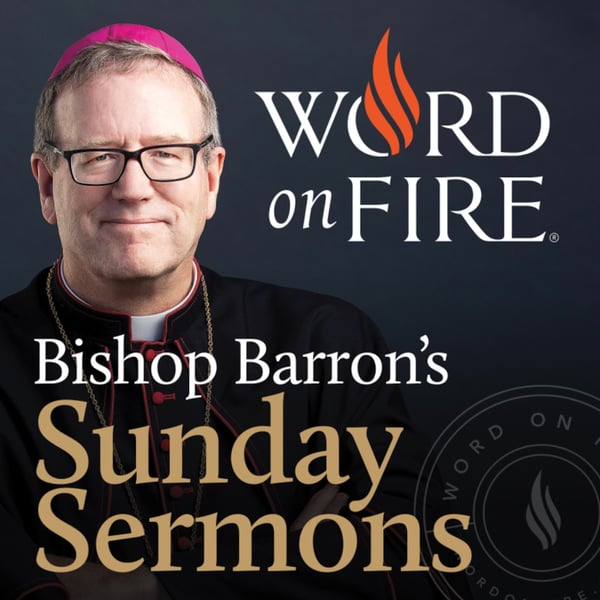The Friend of Sinners
Bishop Barron’s Sunday Sermons - Catholic Preaching and Homilies
Bishop Robert Barron
4.8 • 4.6K Ratings
🗓️ 12 January 2003
⏱️ 15 minutes
🧾️ Download transcript
Summary
Transcript
Click on a timestamp to play from that location
| 0:00.0 | This is Cardinal Francis George, and I invite you to join me for the next few minutes to reflect with Father Robert Baron on the word of God, which is the word on fire. |
| 0:10.0 | Father Baron will challenge us to open our hearts to the word on fire, which is God's word of love for each of us. |
| 0:17.0 | If our hearts are open, the Lord can change and transform us, clearly might speak with love about the one who is love. |
| 0:25.0 | The Archdiocese of Chicago through the generosity of Sacred Heart Parish in Winnicka now presents the word on fire. |
| 0:32.0 | Peace be with you. Friends in the 1930s, 40s and 50s, there was a group of scholars and writers who used to meet at a little pub outside the town of Oxford. |
| 0:47.0 | They were all associated with Oxford University, these scholars and writers. They called themselves the Inklings, little play on words. |
| 0:56.0 | The pub where they gathered was a very ordinary place. In fact, I saw it when I was in Oxford a couple of years ago, most ordinary sort of place where common people would gather. |
| 1:06.0 | In the back of this pub, these scholars would meet. They would talk about their work, they would encourage and challenge each other, |
| 1:16.0 | and they would read to one another what they were working on. These men were not only writers, not only scholars. |
| 1:25.0 | They were also Christians, and one of their major concerns was showing how you could bring Christian themes into your writing. |
| 1:37.0 | The best known of the Inklings was Clive Staples Lewis, the author of Mirror Christianity, the Scrutape letters, the Narnia Chronicles. |
| 1:49.0 | Lewis would read his poetry and his essays and novels to his friends. Another member of the Inklings was Charles Williams, not as well known as Lewis, but in his own way as remarkable. |
| 2:02.0 | Williams wrote these fantastic novels that included in a really wonderful way many of the themes of Christian life. |
| 2:11.0 | There was a third member of the Inklings, probably now almost as well known as C.S. Lewis. His name was John Ronald Rule Tolkien. |
| 2:23.0 | Tolkien was the professor of Anglo-Saxon at Oxford. He did some scholarly work that a few specialists read. |
| 2:32.0 | The Tolkien beginning of the 1930s began to read to his friends in the Inklings, novels and stories and sagas. |
| 2:41.0 | The first was the Hobbit published in 1937, but the first people to hear the Hobbit were the Inklings. |
| 2:49.0 | Then throughout the late 40s and early 50s, he began to write and to read to his friends the Lord of the Rings, which is now the basis of the most popular movie in the world, the series of films based on the three books. |
| 3:06.0 | Of course, the books themselves became in the 60s and 70s and 80s, multi-million sellers all over the world. |
| 3:14.0 | It's very easy to forget in our enthusiasm for the energy and drama of these stories. |
| 3:21.0 | The Tolkien was a Catholic, a very devout Catholic, and that he wanted to pour into this great story his Catholic faith. |
| 3:34.0 | Let me talk to you a little bit about the Catholic themes in Tolkien's Lord of the Rings. |
... |
Please login to see the full transcript.
Disclaimer: The podcast and artwork embedded on this page are from Bishop Robert Barron, and are the property of its owner and not affiliated with or endorsed by Tapesearch.
Generated transcripts are the property of Bishop Robert Barron and are distributed freely under the Fair Use doctrine. Transcripts generated by Tapesearch are not guaranteed to be accurate.
Copyright © Tapesearch 2025.

